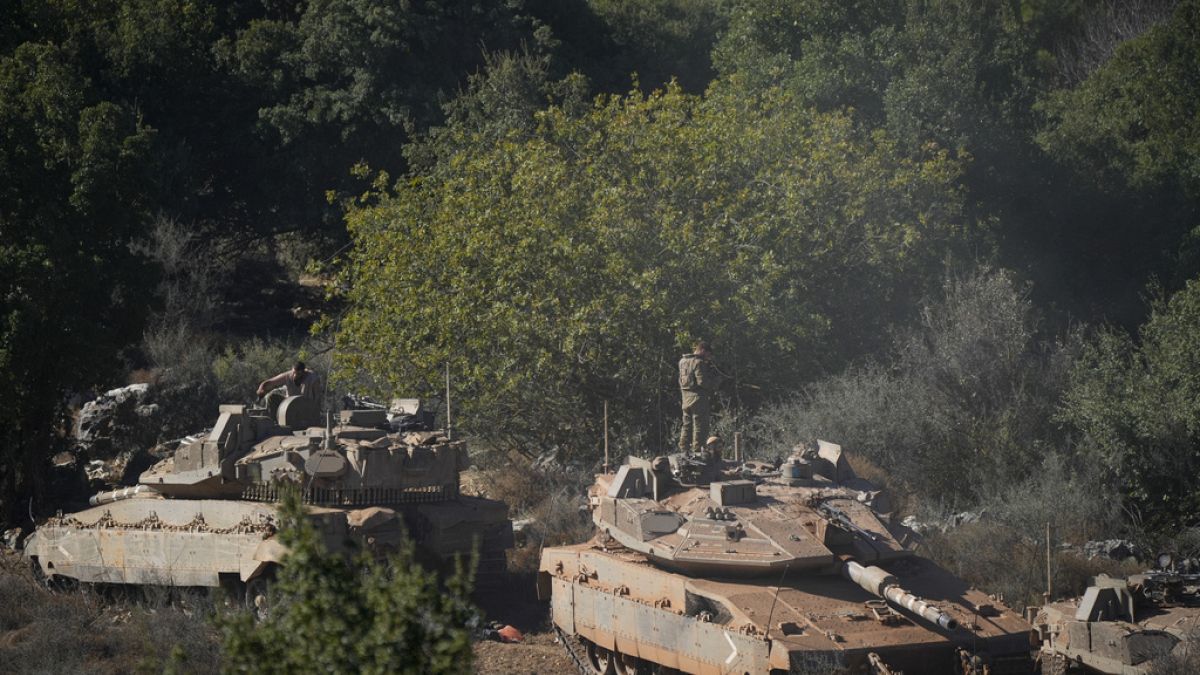The ongoing conflict between Israel and Hezbollah has led to tens of thousands of people fleeing across the border from Lebanon into Syria. More than 200,000 people have been displaced in Lebanon since Hezbollah started firing rockets into northern Israel in support of Hamas. The Lebanese health ministry reported a total of 1,540 people killed within its borders, with almost half of them dying in the last week due to Israeli airstrikes. Israel has intensified its attacks on Lebanese targets, aiming to eliminate Hezbollah’s military capabilities and key commanders. Top Israeli officials have warned of repeating the destruction of Gaza in Lebanon if Hezbollah’s attacks continue.
The situation escalated further with ongoing fire from Lebanon into Israel. Israeli military intercepted four drones and multiple projectiles coming from Lebanon. In a separate incident, an overnight Israeli airstrike in Syria resulted in the death of five Syrian army soldiers. Despite calls from the US, France, and other allies for a 21-day ceasefire, Israel’s Prime Minister Benjamin Netanyahu has emphasized that Israel will continue to strike Hezbollah with full force until its goals are achieved. There have been reports of Israeli military vehicles transporting tanks and armored vehicles towards the northern border with Lebanon, as reservists have been called up.
The conflict has caused a humanitarian crisis in Lebanon, with thousands of people fleeing the violence and seeking refuge in Syria. The International Organisation for Migration reported over 200,000 people displaced in Lebanon since the conflict began. The Lebanese health ministry’s figures of 1,540 deaths highlight the devastating impact of the airstrikes on civilian populations in Lebanon. The destruction of border villages by Israel has been condemned by Lebanon’s foreign minister, who has welcomed the call for a ceasefire by international allies.
Amidst the violence, the situation in the region remains tense with ongoing attacks and retaliations between Israel, Hezbollah, and other parties involved. The escalation of the conflict has led to a significant number of casualties on both sides, with the death toll mounting in Lebanon and Syria. The continued airstrikes and drone attacks have raised concerns about the impact on civilian populations and the possibility of further escalation in the region. Efforts for a ceasefire by international allies have so far been unsuccessful, with Israel vowing to continue its military operations until its objectives are met.
The humanitarian crisis resulting from the conflict underscores the urgent need for a peaceful resolution to the violence in the region. The displacement of hundreds of thousands of people, the loss of lives, and the destruction of infrastructure highlight the devastating consequences of the ongoing conflict. International calls for a ceasefire and diplomatic solutions must be given priority to prevent further loss of life and humanitarian suffering in Lebanon, Syria, and other affected areas. The long-term impact of the conflict on the region’s stability and security remains a major concern, underscoring the need for a sustainable and peaceful resolution to the crisis.
In conclusion, the ongoing conflict between Israel and Hezbollah has brought about a devastating humanitarian crisis in Lebanon and Syria. The displacement of hundreds of thousands of people, the mounting death toll, and the destruction of infrastructure highlight the urgent need for a peaceful resolution to the violence. International calls for a ceasefire have so far been unsuccessful, with Israel vowing to continue its military operations until its objectives are achieved. The continued attacks and retaliations in the region raise concerns about further escalation and the impact on civilian populations. Efforts must be made to prioritize diplomatic solutions and de-escalation to prevent further loss of life and suffering in the conflict-affected areas.



























